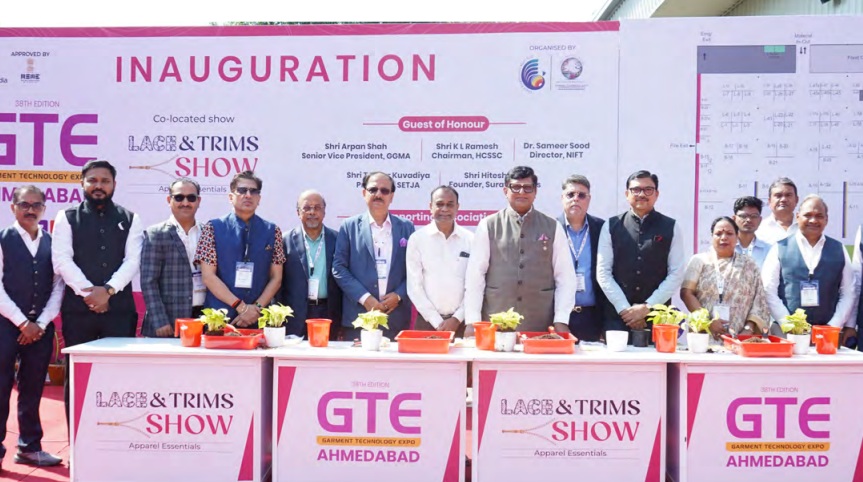New Economic Survey by India advocates for a strategic overhaul of the textile sector, aligning with the global surge in demand for man-made fiber (MMF) products.
Currently, India constitutes only 9.2 per cent of global MMF production . The country trails significantly behind global leaders like Vietnam, China, and Taiwan. A shift to MMF will help boost India's textile exports, as MMF dominated 77 per cent of global fiber consumption in 2024, while cotton accounted for only 22 per cent, says the survey.
Further, the survey highlights concerns about the cotton segment's complex value chain and lack of localization, hindering cost competitiveness. It urges the development of vertically integrated ‘fiber-to-fashion’ firms, similar to those in China and Vietnam, to streamline production. India's cotton production, concentrated in Gujarat, Madhya Pradesh, and Andhra Pradesh, involves a convoluted process of transporting raw materials to Tamil Nadu for yarn production, then back to Maharashtra and Gujarat for weaving. This contrasts sharply with the efficient, localized production of competitor nations.
Furthermore, the survey points out, complex customs procedures and pre-shipment inspection requirements create logistical bottlenecks and increase costs for Indian textile exporters, putting them at a disadvantage compared to China and Vietnam.
While India holds a comparative advantage in cotton-based products, global demand has gravitated towards MMF, used in everything from athleisure wear to technical textiles for aerospace and automotive industries. India's textile export basket is heavily skewed towards cotton, with cotton and cotton-based products comprising eight of the top ten textile exports.
Technical textiles present another promising growth area, notes the survey. India's technical textile sector, currently the fifth largest globally, is rapidly expanding, with a market size of $26.8 billion in FY24. India is a net exporter of technical textiles, with exports valued at $2.58 billion in FY24.
The survey acknowledges that the dominance of micro, small, and medium enterprises (MSMEs) limits scale and efficiency, while the sector's fragmented nature increases logistical costs. Limited foreign direct investment has hampered technological advancements, leading to reliance on imported machinery. A significant skills gap also restricts productivity and innovation.
The textile and apparel industry contributes 2.3 per cent to India's GDP, 13 per cent to industrial production, and 12 per cent to exports, employing over 45 million people. In 2023, India's textile exports reached $34 billion, with apparel accounting for 42 per cent, raw and semi-finished materials for 34 per cent, and finished non-apparel goods for 30 per cent. Europe and the US are the primary destinations for India's apparel exports.
Despite being a significant player, India's global apparel market share of 2.8 per cent in 2023 pales in comparison to China's 30 per cent, Bangladesh's 9 per cent, and Vietnam's 7 per cent. By embracing MMF, streamlining production, and addressing the challenges faced by MSMEs, India aims to capture a larger share of the global textile market.












